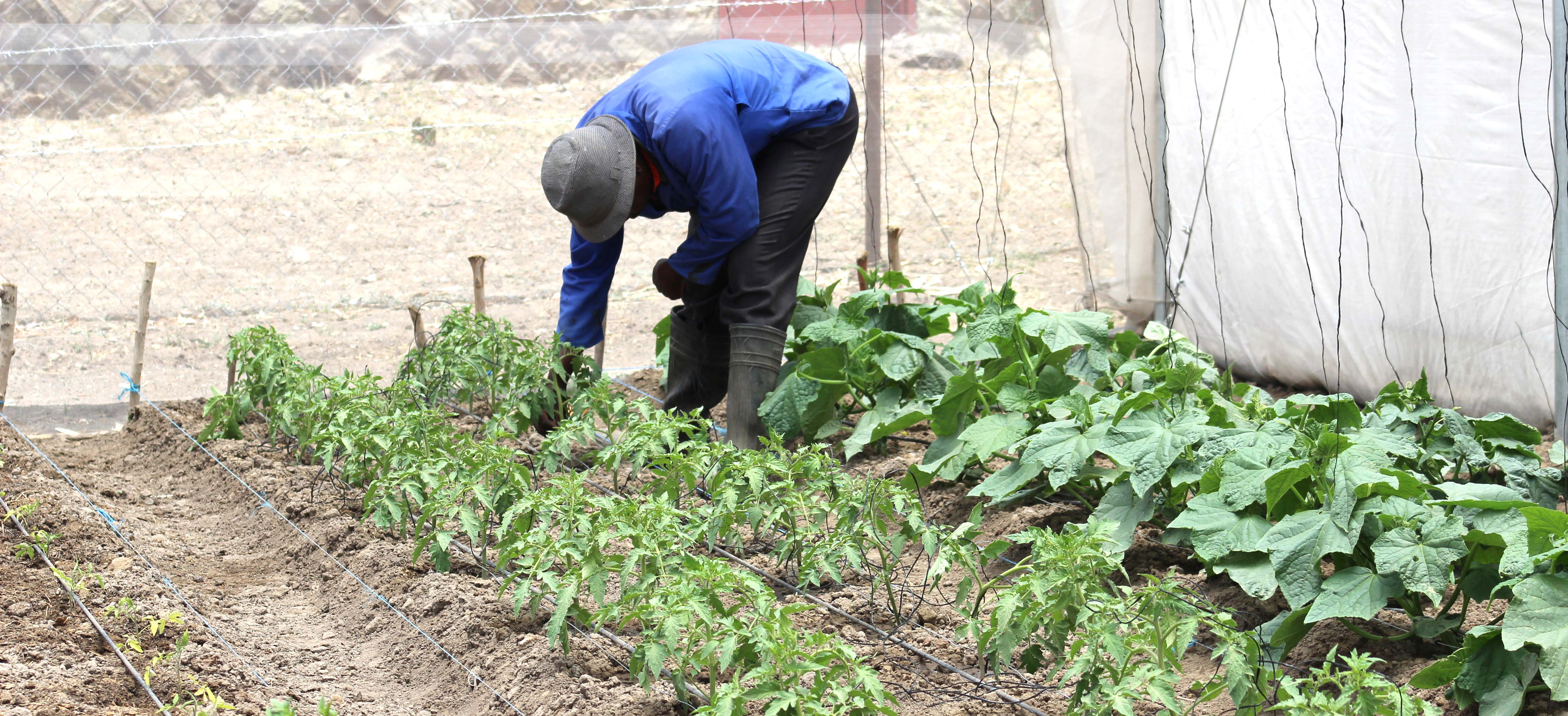Rethabile Pitso
A CALL has been made for government and other stakeholders to create an enabling environment for the sale of horticultural products for domestic and export markets.
This was said on Monday by Leribe Basotho Horticultural Farmers Association (LEBAHOFA) Chairman Tatolo Kakata during a tour of the fresh produce project organized by the ministries of Trade and Industry (MTI) and Agriculture and Food Security (MAFS) in Leribe.
The trip was meant to familiarize a visiting delegation of Tanzanian government officials with the implementation of the project, which was sponsored by the Enhanced Integrated Framework (EIF) in conjunction with government.
EIF is a multi-donor programme which helps least-developed countries like Lesotho play a more active role in the global trading system. The programme has a wider goal of promoting economic growth and sustainable development as well as helping to lift people out of poverty.
LEBAHOFA received five greenhouse kits in 2013 from the 85 distributed around the country by EIF. The green houses were distributed to groups and individuals who had shown the potential to become commercial farmers.
Mr Kakata said while the greenhouses had changed their lives for the better, they were struggling to find markets for their produce.
“We were given five green houses in November 2013 which have enabled us to grow vegetables like tomatoes, cucumbers, and yellow peppers,” he said.
“However, when we harvested the produce, we realized that the tomato seedlings we were given by the government produced a shape most people were not familiar with since they were oval shaped. Because of the unique shape, many customers were not eager to buy the product.”
Mr Kakata said their customers were also not familiar with the yellow pepper and cucumbers, resulting in poor sales.
“Because of the low demand, we drastically reduced the prices of the produce. In the case of the cucumbers, which we would normally sell to Shoprite Hlotse for M12, we ended up reducing the price to a measly M2,” he said.
“It boosted our sales, and despite the slashed prices, we still managed to make a profit.”
Mr Kakata said they were failing to sell to retail outlets due to their requirement for a barcode for their products.
“We supply three different categories of customers, namely individuals, street vendors and a local Shoprite Supermarket here in Hlotse. “However, for us to supply to such a large retail store, we need to have a bar code for their inventory requirements,” he said.
“Since we do not yet have the bar code, we lost business opportunities and were left with only the option of supplying to individuals and street vendors. We are now working towards getting a bar code and, hopefully, penetrating the retail market.”
The other challenge, Mr Kakata said, was a shortage of personnel as most of the founding LEBAHOFA members found the going tough and fell by the wayside.
“When we started the association, we had a 100 members, but the numbers slowly dwindled as people realized that the project required a lot of hard work,” he said.
“The remaining members are only 16. I think most of the former members expected to receive more money in addition to the five greenhouses and the seedlings we bought from government at a reduced cost.”
MAFS Agricultural Productivity and Trade Development Project Manager Mahlape Qoane said the aim of the EIF project was to raise farmers’ competitiveness and productive capacity.
“Both MAFS and MTI are working jointly to assist farmers and individual groups towards agricultural commercialisation; with MAFS offering the technical support, while MTI brings in the marketing support,” she said.
“MTI has a standards and quality assurance department of which offers training on the requirements for exports. One of them is an inspection certificate with such details as the nutritional value of the food and the origins of the product to assess its quality before exportation.”
Ms Qoane said a bar code was necessary for exporting produce to ensure it is traceable, adding that a local firm, Alosang, would soon test products meant for export.
“Through the testing facility, Lesotho will now be able to export products that are certified for international standards making our goal of commercializing agriculture attainable,” she said.


1 comment